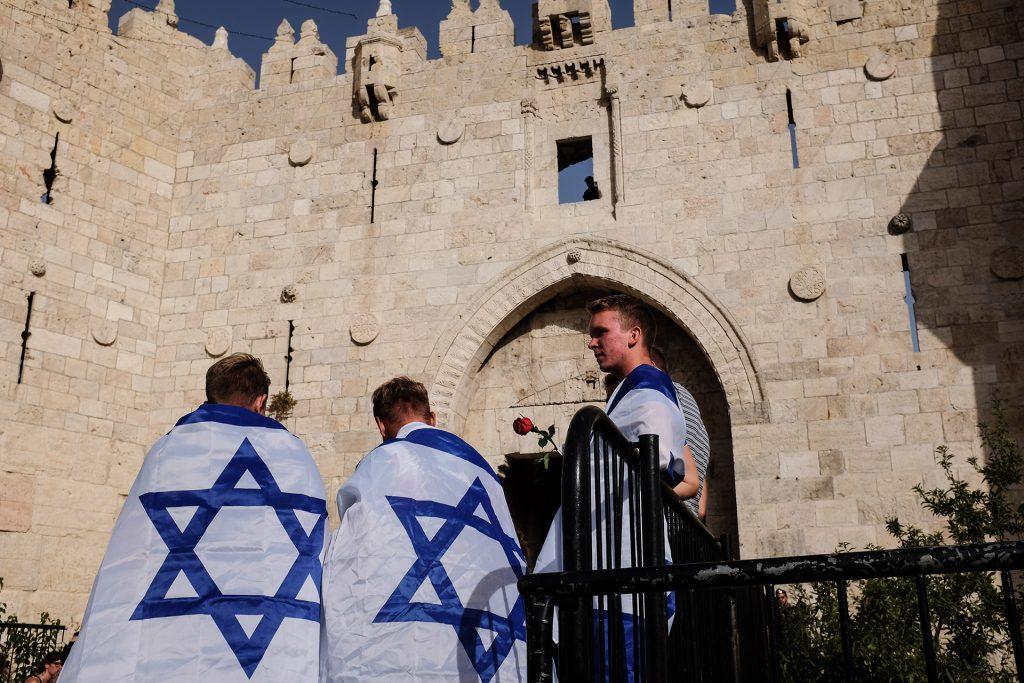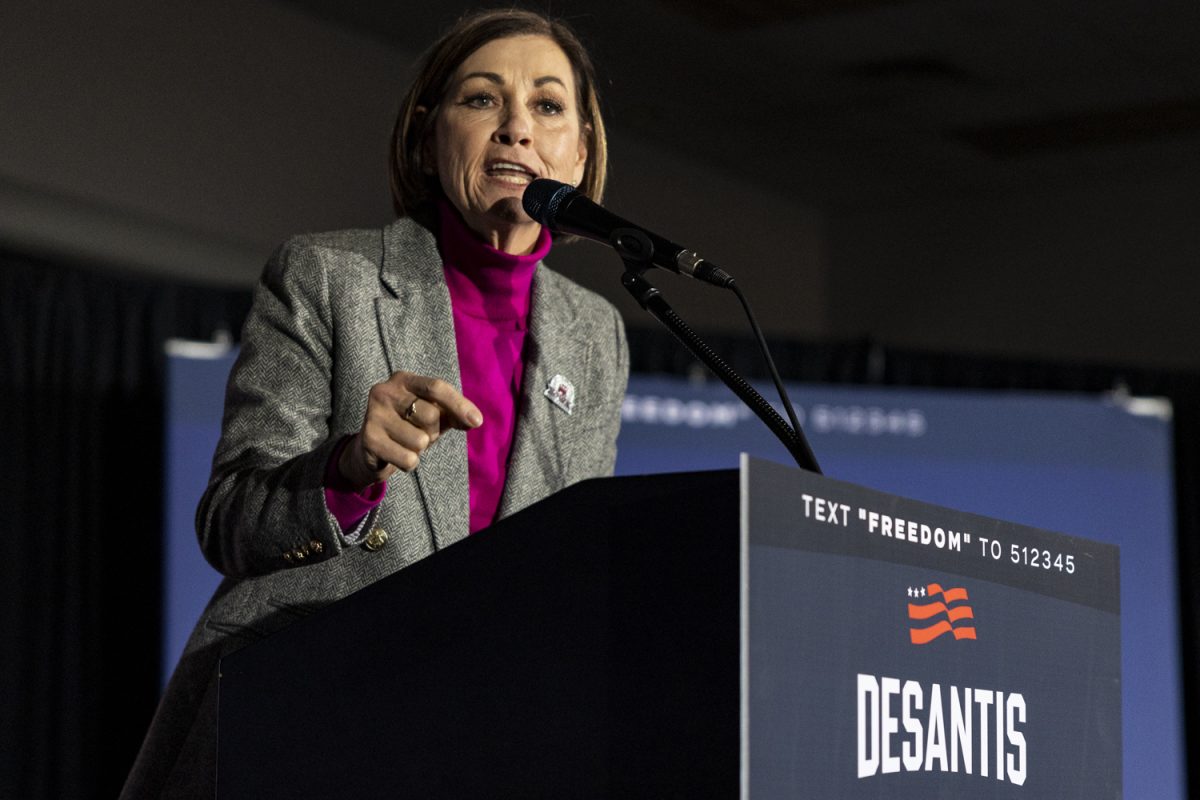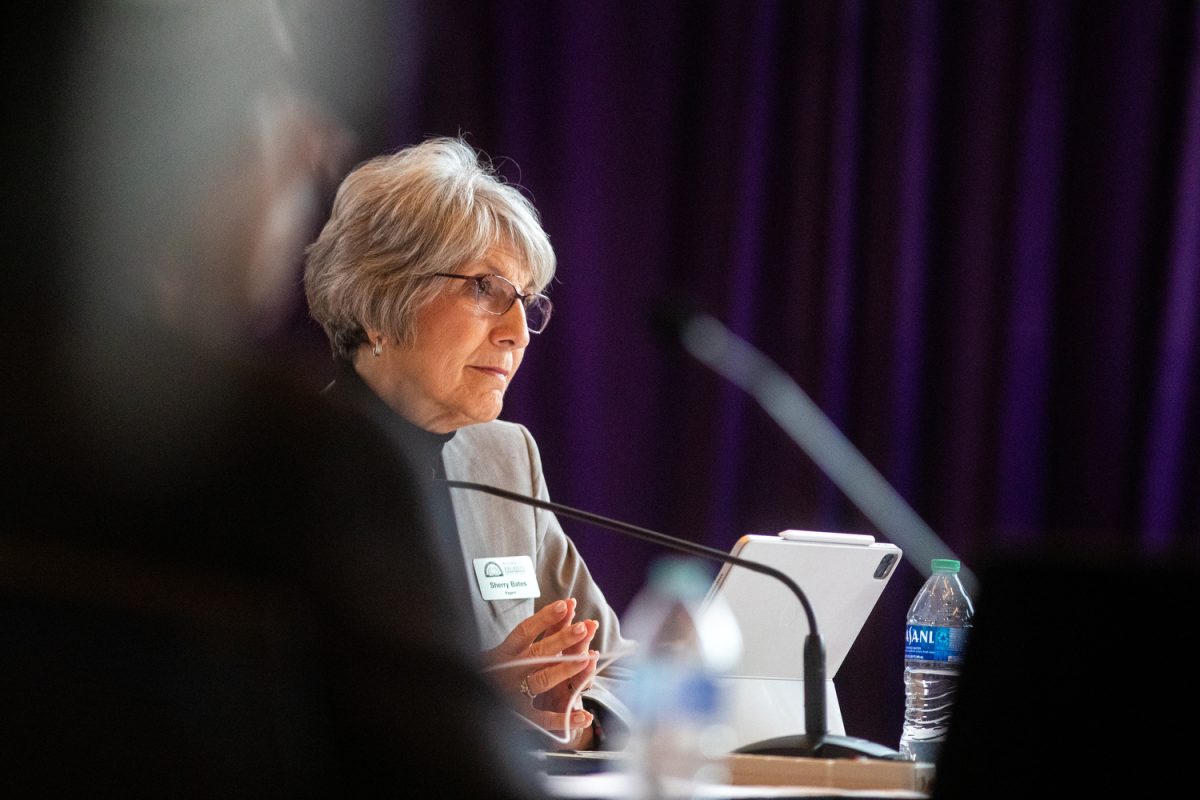President Trump announced Wednesday that the U.S. will recognize Jerusalem as Israel’s capital, which caused mixed reactions across the world and on campus.
By Daily Iowan Staff
[email protected]
President Trump announced on Wednesday that the U.S. will acknowledge West Jerusalem as the capital of Israel, which means that the U.S. Embassy in Israel will be moved there. Trump referred to the change in a statement released by the U.S. Embassy as a new approach to conflict between Israel and the Palestinians.
But Saudi Arabia King Salman and Palestinian Authority President Mahmoud Abbas warned Trump that the change could disrupt the peace process and provoke violence.
According to reports from Saudi state television, Salman told Trump that “moving the U.S. Embassy is a dangerous step that provokes the feelings of Muslims around the world.”
Jordan King Abdullah II also warned Trump about the decision, according to a statement from the royal palace in Amman.
“… stressing that Jerusalem is the key to achieving peace and stability in the region and the world,” the statement read.
RELATED: Guest: Israel anti-boycott bill doesn’t violate free speech
But Trump’s decision was not disputed by everyone.
David Weltman, the president of the local Hillel House, said that while the decision is reflective of the situation on the ground, he believes it is a positive development reflective of U.S. policy.
Hillel describes itself as a nexus of Jewish life on campus.
“However, this should also be a moment of reigniting the spirit of a drive for peace so present on all sides in the 1990s, when the bill was created,” Weltman said. “And we urge our leaders today to continue the work of peace to benefit both Israelis and Palestinians.”
Weltman said he hopes Jerusalem, which he referred to as the City of Peace, will be a center for all faiths to come together in peaceful dialogue and relations, while simultaneously proudly taking its rightful place as the capital of the State of Israel.
“Jerusalem is considered a holy place by Jewish, Muslim, and Christian individuals; in all three religions, significant events took place in Jerusalem,” he said.
Max Bolin, the Hillel vice president of communications and outreach, said he doesn’t think the change will be good for peace in Israel.
RELATED: Guest: Congress’ Israel anti-boycott bill is anti-free speech
“… Both sides claim Jerusalem as a sacred place,” he said.
The capital switch from Tel Aviv to Jerusalem will not take place for what could be several years, officials said. Trump promised to keep the U.S. Embassy in its current location for at least six months.
UI freshman Maya Simon, a Hillel attendee, said she does not think Jerusalem should be the capital of Israel.
“… Just because it has ties to so many religions,” Simon said. “And the Israeli government is 1) Jewish and 2) pretty controversial.”
In the U.S. Embassy’s statement, Trump said his decision is not intended to reflect a departure from working toward a peace agreement, but he conceded that there will be opposition to the announcement.
“We want an agreement that is a great deal for the Israelis and a great deal for the Palestinians,” Trump said in the statement. “We are not taking a position of any final status issues, including the specific boundaries of the Israeli sovereignty in Jerusalem or the resolution of contested borders. Those questions are up to the parties involved.”
Trump said Vice President Mike Pence will visit the region in the coming weeks.







